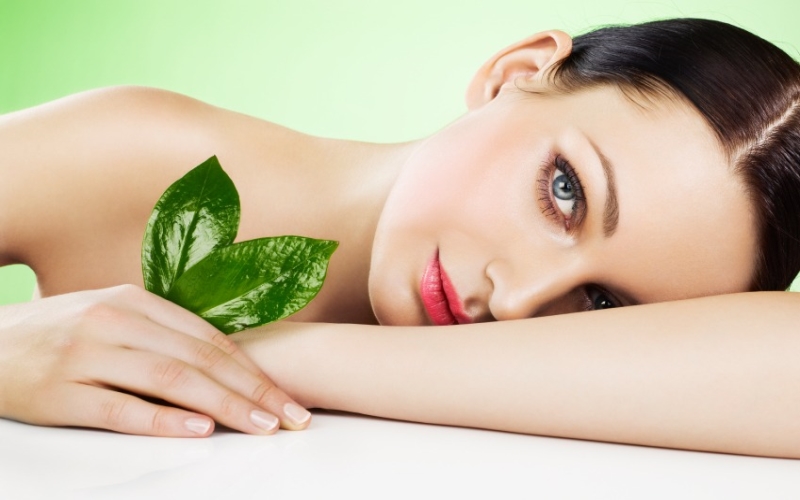You’ve been curious about natural and organic cosmetics and how they can benefit your skin, right? With so many products on the market promising flawless complexions, it can be tough to know where to start. Stick with me, friend, as we uncover why using natural organic cosmetics may be the skincare choice your skin has been craving. I’ll highlight the key reasons these products are worth exploring when it comes to your skin health – no filler, no fluff, just helpful info to guide your next cosmetic purchase.
Benefits of Using Natural Organic Cosmetics for Your Skin
Using natural organic cosmetics has significant benefits for your skin health and overall wellbeing. Unlike commercial cosmetics that can contain harsh chemicals, synthetic fragrances and parabens, organic cosmetics are gentler and kinder to your skin. Organic cosmetics are made from plant-based ingredients found in nature. Things like coconut oil, shea butter, jojoba oil, aloe vera and essential oils are common. These natural ingredients are full of antioxidants and skin-nourishing vitamins and minerals. They help moisturize, soothe and protect skin without the use of toxic additives. Commercial cosmetics often contain potentially harmful chemicals like parabens, phthalates, triclosan, and sodium lauryl sulfate. Over time, exposure to these chemicals may lead to skin irritation, endocrine disruption and other issues.
Choosing the Right Natural Organic Skincare Products
Look for certified organic products that are formulated without parabens, phthalates, synthetic fragrances, dyes or preservatives. Ingredients should be plant-based, naturally-derived and cruelty-free. Some of the best organic ingredients to look for include:
- Coconut oil: A natural moisturizer and antibacterial agent. Great for all skin types.
- Aloe vera: Soothes and calms irritated skin. Helps heal sunburn and reduce inflammation.
- Jojoba oil: Similar to the natural oils in our skin. Balances oil production and moisturizes.
- Shea butter: A rich cream derived from the shea nut. Deeply hydrates and softens skin. Anti-aging.
- Rosehip oil: High in Vitamin E and essential fatty acids. Brightens skin, reduces scarring and fine lines.
For more tips on natural skincare, click here to find more details.
DIY Natural Organic Skincare Recipes to Try at Home
Have you ever wanted to make your own organic skincare products at home? Creating DIY skincare recipes with natural ingredients is easier than you might think.Here are a few simple DIY natural skincare recipes to get you started:
1. Coconut Oil Cleansing Pads
Coconut oil is a natural antifungal and antibacterial agent that works great as a makeup remover and facial cleanser. Soak cotton pads or rounds in coconut oil and use them to remove dirt, oil and makeup. Gently wipe your face with the pads and rinse with water. Your skin will feel clean and hydrated.
2. Honey face Mask
Raw honey is a humectant, meaning it draws moisture into the skin. It’s also a natural antibacterial agent. Apply 1-2 tablespoons of raw honey to your face and let it sit for 10-15 minutes. Rinse with lukewarm water. Use 1-2 times a week to hydrate, brighten and clarify your skin.
3. Sugar Scrub Exfoliant
A sugar scrub is a gentle exfoliant that removes dead skin cells and leaves your skin feeling soft. Combine 1 cup sugar (white or brown), 1/2 cup coconut or olive oil and 10-15 drops essential oil (lavender, lemon or grapefruit). Gently massage the scrub onto your skin and rinse with water. Use 1-2 times a week to exfoliate and brighten your skin.
FAQs
What’s the difference between natural and organic skincare?
Natural skincare products contain ingredients that are derived from nature, such as plants, minerals, and essential oils. Organic skincare takes it a step further by using ingredients that are certified organic, meaning they’re grown without the use of harmful chemicals, pesticides or fertilizers. So organic skincare can be considered a subset of natural skincare.
Are natural and organic products better for my skin?
In general, yes. Natural and organic skincare products tend to be gentler and less irritating since they avoid harsh synthetic chemicals. They hydrate, soothe and protect skin using plant-based ingredients that are biologically similar to those found in human skin.
Do natural or organic products mean “fragrance-free”?
Not necessarily. Many natural and organic skincare products are scented using essential oils and plant extracts.
Conclusion
You’ve come this far, so it’s clear you care about what you put on your skin. With so many options out there, it can get overwhelming trying to figure out the best products. But remember – you know your skin better than any label or advertisement. Listen to what it tells you. Does it react when you switch products suddenly? Does it calm down when you stick to gentle, plant-based formulas? Take a breath and don’t overthink it. Start small by incorporating one new natural product at a time until you find your staples. Then build a simple routine from there. Your skin will thank you for taking it slowly and thoughtfully. After all, it protects you every single day. Show it some love in return.

